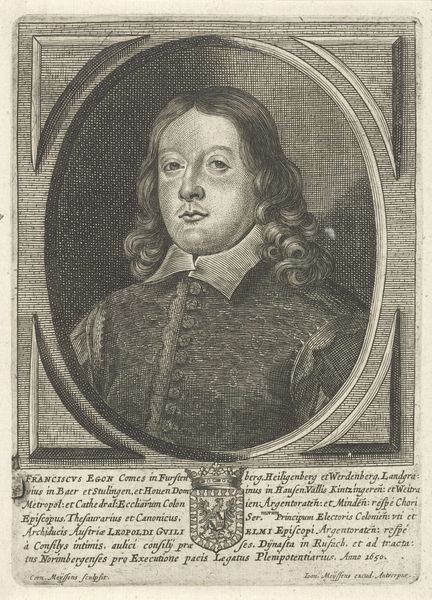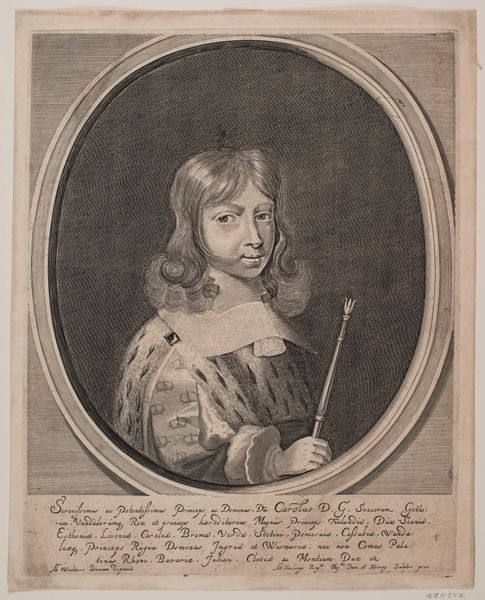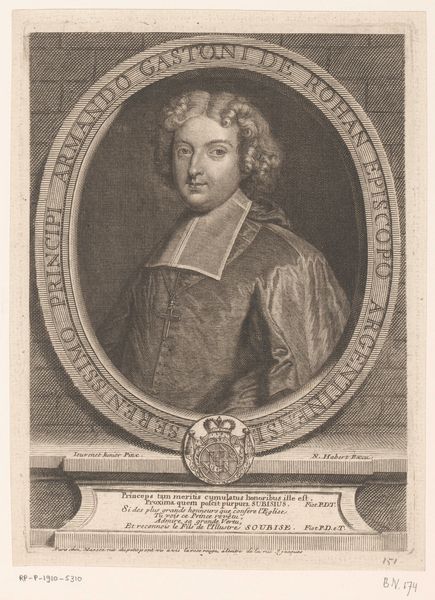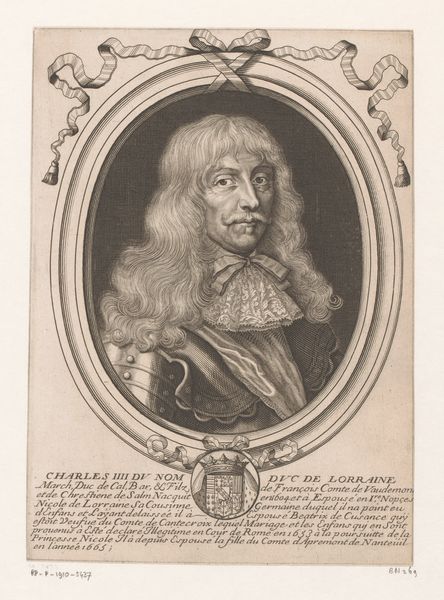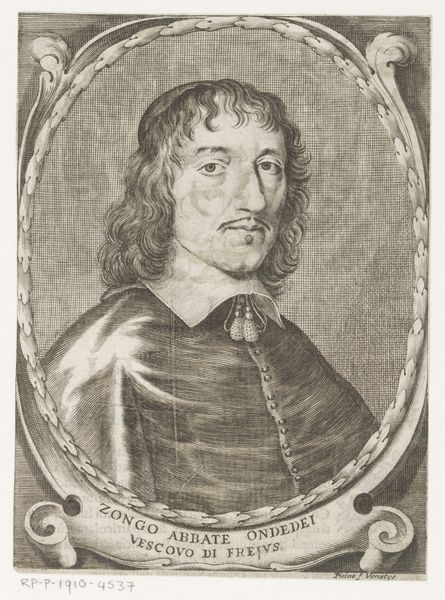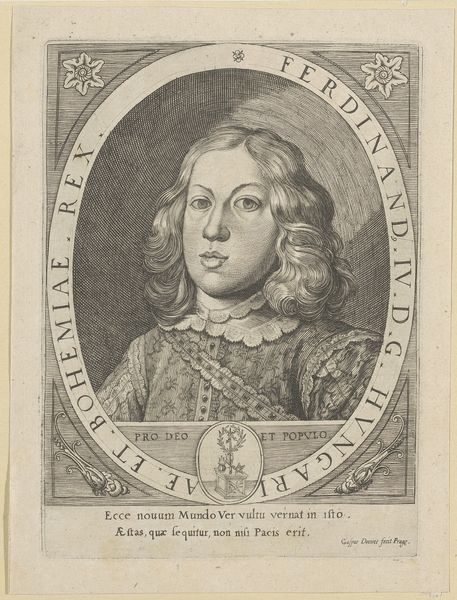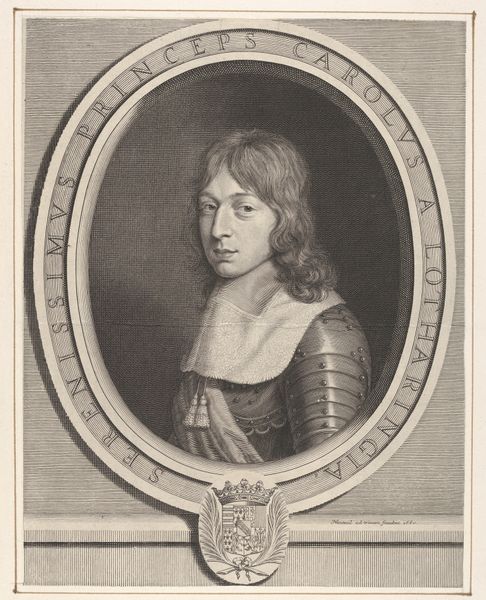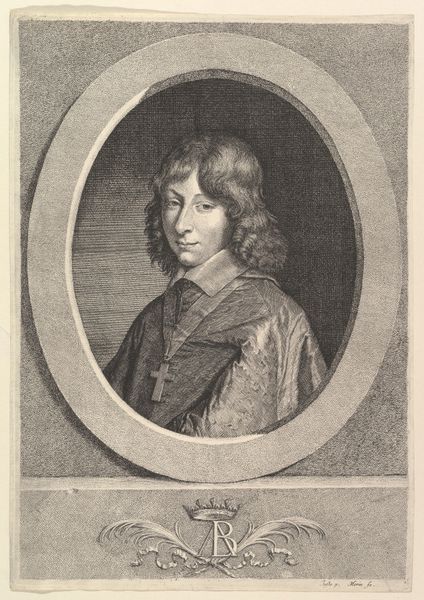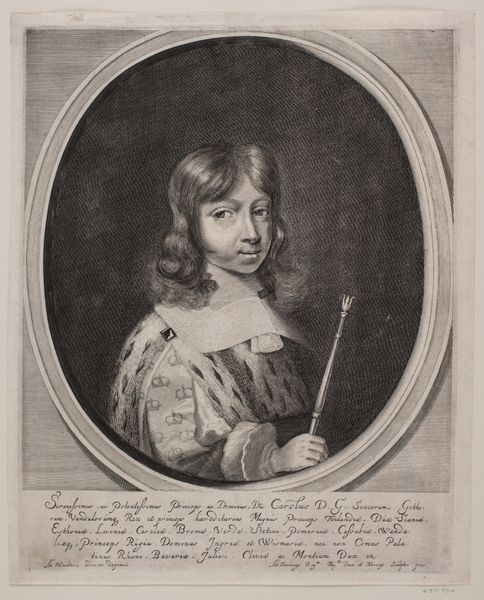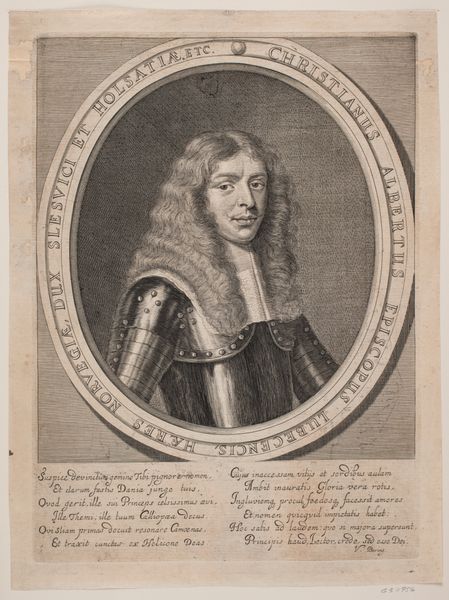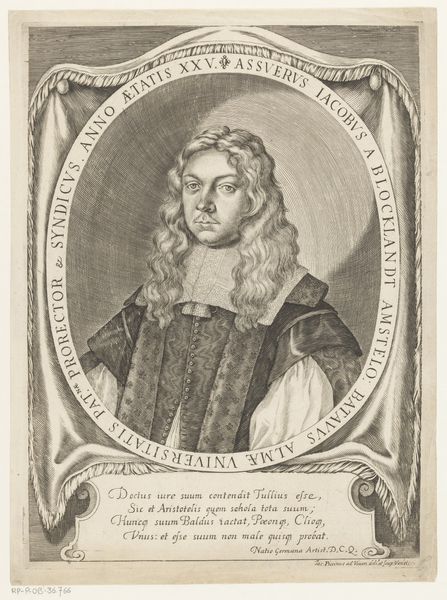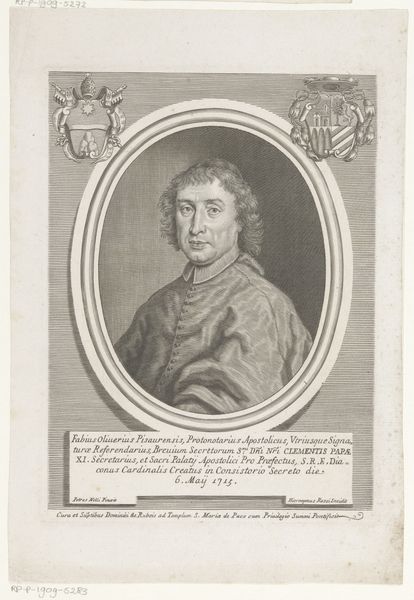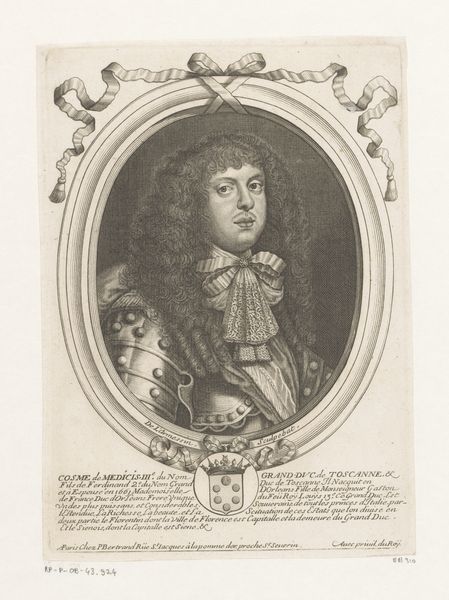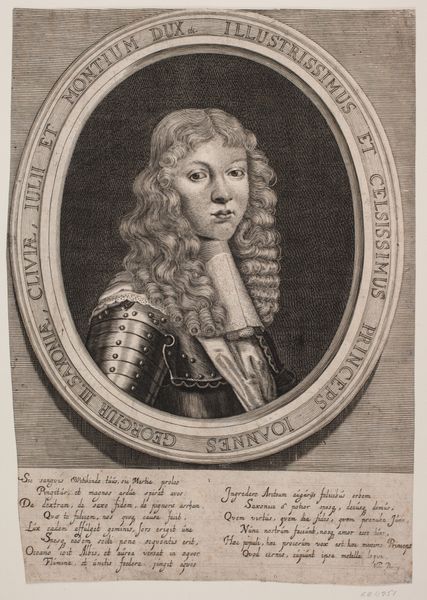
Portret van Willem III, prins van Oranje en koning van Engeland, Schotland en Ierland c. 1640 - 1702
0:00
0:00
crispijnvandenqueborn
Rijksmuseum
print, engraving
#
portrait
#
baroque
# print
#
history-painting
#
engraving
Dimensions: height 217 mm, width 143 mm
Copyright: Rijks Museum: Open Domain
Crispijn van den Queborn created this portrait of William III in an unspecified year using engraving, a printmaking technique that demands precision. The process begins with a metal plate, traditionally copper, into which the artist carves a design using a tool called a burin. The lines created are then filled with ink, and the plate is pressed onto paper, transferring the image. Look closely, and you'll notice the intricacy of the lines, defining the young prince's features and elaborate attire. The material properties of the metal plate allow for fine detail, but also require immense skill and time. Engraving was crucial for disseminating images and information, acting almost like a form of social media of its day. The proliferation of printed portraits helped cement the status of figures like William III, and also speaks to the labor involved, both in the creation of the artwork and the printing process itself. Considering the materials, making, and social context allows us to appreciate the true depth and skill of the artwork, moving beyond traditional boundaries of fine art.
Comments
No comments
Be the first to comment and join the conversation on the ultimate creative platform.
